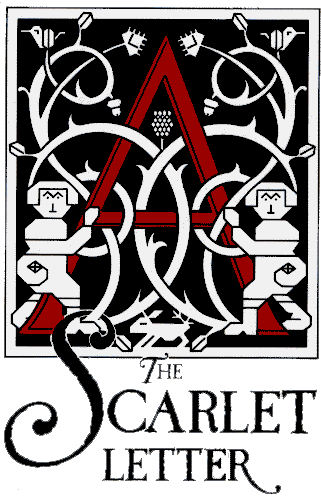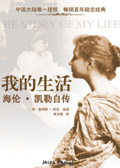奥兰多orlando (英文版)作者:弗吉尼亚·伍尔芙-第49章
按键盘上方向键 ← 或 → 可快速上下翻页,按键盘上的 Enter 键可回到本书目录页,按键盘上方向键 ↑ 可回到本页顶部!
————未阅读完?加入书签已便下次继续阅读!
that now floods back refluent like a tide; the red; thick stream of life again; bubbling; dripping; and we rise; and our eyes (for how handy a rhyme is to pass us safe over the awkward transition from death to life) fall on—(here the barrel–organ stops playing abruptly)。
‘It’s a very fine boy; M’Lady;’ said Mrs Banting; the midwife; putting her first–born child into Orlando’s arms。 In other words Orlando was safely delivered of a son on Thursday; March the 20th; at three o’clock in the morning。
Once more Orlando stood at the window; but let the reader take courage; nothing of the same sort is going to happen to–day; which is not; by any means; the same day。 No—for if we look out of the window; as Orlando was doing at the moment; we shall see that Park Lane itself has considerably changed。 Indeed one might stand there ten minutes or more; as Orlando stood now; without seeing a single barouche landau。 ‘Look at that!’ she exclaimed; some days later when an absurd truncated carriage without any horses began to glide about of its own accord。 A carriage without any horses indeed! She was called away just as she said that; but came back again after a time and had another look out of the window。 It was odd sort of weather nowadays。 The sky itself; she could not help thinking; had changed。 It was no longer so thick; so watery; so prismatic now that King Edward—see; there he was; stepping out of his neat brougham to go and visit a certain lady opposite—had succeeded Queen Victoria。 The clouds had shrunk to a thin gauze; the sky seemed made of metal; which in hot weather tarnished verdigris; copper colour or orange as metal does in a fog。 It was a little alarming—this shrinkage。 Everything seemed to have shrunk。 Driving past Buckingham Palace last night; there was not a trace of that vast erection which she had thought everlasting; top hats; widows’ weeds; trumpets; telescopes; wreaths; all had vanished and left not a stain; not a puddle even; on the pavement。 But it was now—after another interval she had e back again to her favourite station in the window—now; in the evening; that the change was most remarkable。 Look at the lights in the houses! At a touch; a whole room was lit; hundreds of rooms were lit; and one was precisely the same as the other。 One could see everything in the little square–shaped boxes; there was no privacy; none of those lingering shadows and odd corners that there used to be; none of those women in aprons carrying wobbly lamps which they put down carefully on this table and on that。 At a touch; the whole room was bright。 And the sky was bright all night long; and the pavements were bright; everything was bright。 She came back again at mid–day。 How narrow women have grown lately! They looked like stalks of corn; straight; shining; identical。 And men’s faces were as bare as the palm of one’s hand。 The dryness of the atmosphere brought out the colour in everything and seemed to stiffen the muscles of the cheeks。 It was harder to cry now。 Water was hot in two seconds。 Ivy had perished or been scraped off houses。 Vegetables were less fertile; families were much smaller。 Curtains and covers had been frizzled up and the walls were bare so that new brilliantly coloured pictures of real things like streets; umbrellas; apples; were hung in frames; or painted upon the wood。 There was something definite and distinct about the age; which reminded her of the eighteenth century; except that there was a distraction; a desperation—as she was thinking this; the immensely long tunnel in which she seemed to have been travelling for hundreds of years widened; the light poured in; her thoughts became mysteriously tightened and strung up as if a piano tuner had put his key in her back and stretched the nerves very taut; at the same time her hearing quickened; she could hear every whisper and crackle in the room so that the clock ticking on the mantelpiece beat like a hammer。 And so for some seconds the light went on being brighter and brighter; and she saw everything more and more clearly and the clock ticked louder and louder until there was a terrific explosion right in her ear。 Orlando leapt as if she had been violently struck on the head。 Ten times she was struck。 In fact it was ten o’clock in the morning。 It was the eleventh of October。 It was 1928。 It was the present moment。
No one need wonder that Orlando started; pressed her hand to her heart; and turned pale。 For what more terrifying revelation can there be than that it is the present moment? That we survive the shock at all is only possible because the past shelters us on one side and the future on another。 But we have no time now for reflections; Orlando was terribly late already。 She ran downstairs; she jumped into her motorcar; she pressed the self–starter and was off。 Vast blue blocks of building rose into the air; the red cowls of chimneys were spotted irregularly across the sky; the road shone like silver–headed nails; omnibuses bore down upon her with sculptured white–faced drivers; she noticed sponges; bird–cages; boxes of green American cloth。 But she did not allow these sights to sink into her mind even the fraction of an inch as she crossed the narrow plank of the present; lest she should fall into the raging torrent beneath。 ‘Why don’t you look where you’re going to?。。。Put your hand out; can’t you?’—that was all she said sharply; as if the words were jerked out of her。 For the streets were immensely crowded; people crossed without looking where they were going。 People buzzed and hummed round the plate–glass windows within which one could see a glow of red; a blaze of yellow; as if they were bees; Orlando thought—but her thought that they were bees was violently snipped off and she saw; regaining perspective with one flick of her eye; that they were bodies。 ‘Why don’t you look where you’re going?’ she snapped out。
At last; however; she drew up at Marshall & Snelgrove’s and went into the shop。 Shade and scent enveloped her。 The present fell from her like drops of scalding water。 Light swayed up and down like thin stuffs puffed out by a summer breeze。 She took a list from her bag and began reading in a curious stiff voice at first; as if she were holding the words—boy’s boots; bath salts; sardines—under a tap of many–coloured water。 She watched them change as the light fell on them。 Bath and boots became blunt; obtuse; sardines serrated itself like a saw。 So she stood in the ground–floor department of Messrs Marshall & Snelgrove; looked this way and that; snuffed this smell and that and thus wasted some seconds。 Then she got into the lift; for the good reason that the door stood open; and was shot smoothly upwards。 The very fabric of life now; she thought as she rose; is magic。 In the eighteenth century we knew how everything was done; but here I rise through the air; I listen to voices in America; I see men flying—but how its done I can’t even begin to wonder。 So my belief in magic returns。 Now the lift gave a little jerk as it stopped at the first floor; and she had a vision of innumerable coloured stuffs flaunting in a breeze from which came distinct; strange smells; and each time the lift stopped and flung its doors open; there was another slice of the world displayed with all the smells of that world clinging to it。 She was reminded of the river off Wapping in the time of Elizabeth; where the treasure ships and the merchant ships used to anchor。 How richly and curiously they had smelt! How well she remembered the feel of rough rubies running through her fingers when she dabbled them in a treasure sack! And then lying with Sukey—or whatever her name was—and having Cumberland’s lantern flashed on them! The Cumberlands had a house in Portland Place now and she had lunched with them the other day and ventured a little joke with the old man about almshouses in the Sheen Road。 He had winked。 But here as the lift could go no higher; she must get out—Heaven knows into what ‘department’ as they called it。 She stood still to consult her shopping list; but was blessed if she could see; as the list bade her; bath salts; or boy’s boots anywhere about。 And indeed; she was about to descend again; without buying anyth



![[综]God Is Girl封面](http://www.8kbook.com/cover/40/40665.jpg)
![[bbcsherlock]致我心中的你封面](http://www.8kbook.com/cover/42/42052.jpg)
